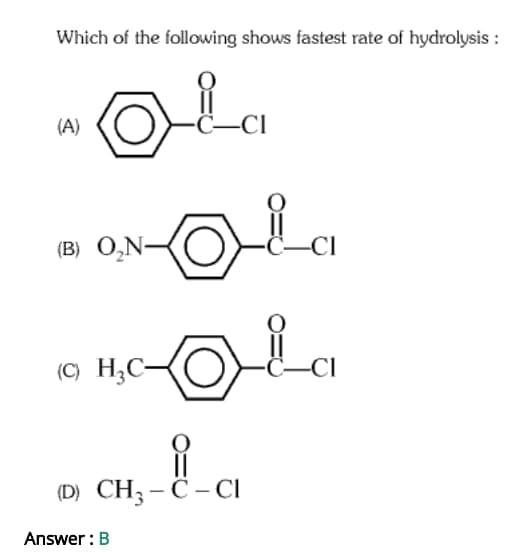In this particular question, my answer is (D) as steric hinderance is minimum there, but answer (B) was given due to the electron withdrawing (-M) effect of the nitro group.
Isn't steric hinderance the dominating factor in nucleophilic addition type reactions? Is it that a planar phenyl ring doesn't offer that much steric hinderance?


